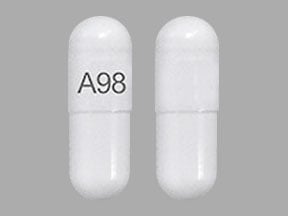
Cuprimine Coupons & Savings Card – Discount Prices from $987.00
Brand for: Penicillamine
My prescription
Edit
250MG, Penicillamine (100 Capsules)
Select pharmacy

CVS
$6993.92
COUPON PRICE
Walgreens
$987.00
COUPON PRICE
Albertsons
$4184.18
COUPON PRICE
Walmart
$22626.56
COUPON PRICECuprimine savings card
Show this card to your pharmacist
Walgreens
$987.00
BIN
ID
PCN
GRP
019876
LHDF3F90B3
CHIPPO
LHX
Powered by
Related antirheumatics prescriptions
More prescriptions for Wilson's disease
Related antirheumatics prescriptions
More prescriptions for Wilson's disease
Cuprimine (Penicillamine) dosage forms
Dosage Quantity Price from Per unit 250MG 100 Capsules $987.00 $9.87
| Dosage | Quantity | Price from | Per unit |
|---|---|---|---|
| 250MG | 100 Capsules | $987.00 | $9.87 |
What is Cuprimine used for?
Cuprimine is used primarily for the treatment of Wilson's disease, a genetic disorder that causes excessive copper accumulation in the body. It is also used to treat cystinuria, a condition that leads to the formation of cystine stones in the kidneys, and to manage severe, active rheumatoid arthritis in patients who have not responded to other treatments.
What is the drug penicillamine used for?
Penicillamine is used primarily for the treatment of Wilson's disease, a genetic disorder that leads to excessive copper accumulation in the body. It helps by binding to copper, allowing it to be excreted from the body. Additionally, penicillamine is used in the management of rheumatoid arthritis and to treat cystinuria, a condition that leads to the formation of cystine stones in the kidneys.
What are the side effects of penicillamine?
Penicillamine can cause a range of side effects. Common side effects include nausea, vomiting, loss of appetite, and a metallic taste in the mouth. It may also cause skin rashes and itching. More serious side effects can include blood disorders such as thrombocytopenia, leukopenia, and aplastic anemia, as well as kidney problems like proteinuria. Additionally, it can lead to neurological issues such as peripheral neuropathy. It is important for patients to be monitored regularly by their healthcare provider while taking penicillamine.
What is the classification of cuprimine?
Cuprimine is classified as a chelating agent. It is primarily used to treat conditions such as Wilson's disease and rheumatoid arthritis by binding to excess copper in the body and facilitating its excretion.
What is the function of penicillamine?
Penicillamine is primarily used to treat conditions such as Wilson's disease, where it helps remove excess copper from the body. It is also used in the management of rheumatoid arthritis by reducing inflammation and slowing disease progression. Additionally, penicillamine can be used to treat cystinuria by reducing cystine levels in the urine, thereby preventing the formation of cystine stones.
